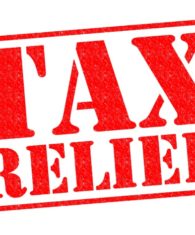BANKRUPTCY: A TOOL FOR DEBT RECOVERY
Bankruptcy is the situation where a person is adjudged as unable to pay his/her debt and the judicial procedure by which such debts are repaid by way of supervised reorganization or liquidation for the benefit of creditors.
In developed climes, Bankruptcy is a serious matter as the debtor will have to give up all assets owned by him; it will also involve the foreclosure of any business run by the debtor and same would be shared between the creditors.
Bankruptcy in Nigeria
Bankruptcy in Nigeria is governed by the Bankruptcy Act 2004 (“the Act”) and the Bankruptcy Rules. Section 126 (1) b of the Act imposes certain restrictions on the debtor, to wit:
- Being elected to the office of President or Vice –President, Governor or Deputy Governor;
- being elected to, or sitting or voting in the Senate, House of Representatives or the State House of Assembly;
- being elected to, or sitting or voting in, any local government council in any State of the Federation or the Federal Capital Territory Abuja;
- being appointed to, or sitting or voting in, any Governing Board (howsoever known or described) of any statutory corporation or any other statutory body (whether corporate or unincorporated) or, as provided by section 253 of the Companies and Allied Matters Act 1990, of any company as defined in that section;
- being appointed to, or acting as a Justice of the Peace;
- being appointed or acting as a trustee of a trust estate;
- being admitted to practice any profession for the time being regulated by law on his own or in partnership or in any other form of association (other than as an employee) with any other person.
Section 127 of the Act also provides that, if a person is adjudged bankrupt while holding any of the offices mentioned in paragraphs (a-f) above, his office shall become automatically vacant and if he was practicing any of the professions mentioned herein he shall cease to be entitled to practice. More importantly bankruptcy confers a stigma on the bankrupt and sends a message to the world that the bankrupt is incapable of conducting his private and financial affairs.
How to Present A Bankruptcy Petition
According to the Act, the following conditions need to be fulfilled before a creditor is allowed to present a bankruptcy petition: –
- The petition must be based on any of the four acts of bankruptcy that is: –
- a. Obtain final judgment or order against the debtor; levy execution of final judgment or order against the debtor;
- b. declaration by the debtor of inability to pay debt;
- Presentation by the debtor of bankruptcy proceedings against self;
2. The act of bankruptcy must have occurred 3 months preceding to the presentation of the petition.
3. The debt must be:
- due and payable either immediately or at a certain future date;
- a specific and liquidated sum; and not less than N2000.00 (Two Thousand Naira)
4. The debtor must have, within a year prior to the presentation of the petition:
- been ordinarily resident in Nigeria: or
- owned a dwelling house or place of business in Nigeria
- conducted business in Nigeria either personally or through an agent or manager; or been a member of a firm or partnership having business in Nigeria through a partner, agent or manager;
5. The petition must be presented at the Federal High Court which has exclusive jurisdiction over bankruptcy proceedings and must be instituted in the division of the court where the debtor has within the preceding six months carried on business.
Upon the fulfilment of these conditions, the petition can then be presented;
The creditor applies to the Registrar of the Federal High Court for a Notice of Bankruptcy to be issued. This must be supported by a certified copy of the judgment and an affidavit stating that he had levied execution on the debtor’s goods and that the goods the proceeds of its sale could not satisfy the judgment debt. The Registrar then issues the bankruptcy notice which would mandate the debtor to pay the debt within a specified period or he would have committed an act of bankruptcy. The creditor then obtains a receiving order from the court which he enables him to proceed against the assets of the debtor. The receiving order would be published in the Federal Gazette and advertised in a National Newspaper; a receiving manager/trustee is also appointed to manage the debtor’s assets.
The debtor is required to give the official receiver in affidavit form a statement of his affairs showing particulars of his assets; debts and liabilities in Nigeria and abroad.
The debtor has the option of proposing a scheme of arrangement to his creditors but this is subject to its acceptability to them. If they reject his scheme then within fourteen days from the date they reject the arrangement, the court would adjudge the petition and declare the debtor bankrupt. A notice of the adjudication order would be published in the Federal Gazette and advertised in at least two National Newspapers.
The bankrupt may be discharged from all liabilities after paying off all the debts owed to the creditors. It is also automatically discharged by operation of law if five years has elapsed since the receiving order was made. Upon discharge, the disqualification to which a bankrupt was subject is removed, this also applies in a case where the bankruptcy order is annulled.
Conclusion
Bankruptcy proceedings are punitive in nature and deprives the bankrupt of his property, which then is realised and distributed among the creditors, subject to the following exceptions:
- Assets held by him in trust by the Bankrupt
- Tools of his trade
- Basic necessities, such as bedding and wearing apparels.
It’s important to also note that in a partnership bankruptcy, the liabilities of the partnership are settled from the assets of the business however when the assets are insufficient to meet the liabilities, then the personal assets and liabilities of the partners shall be used to make up for the liabilities.






